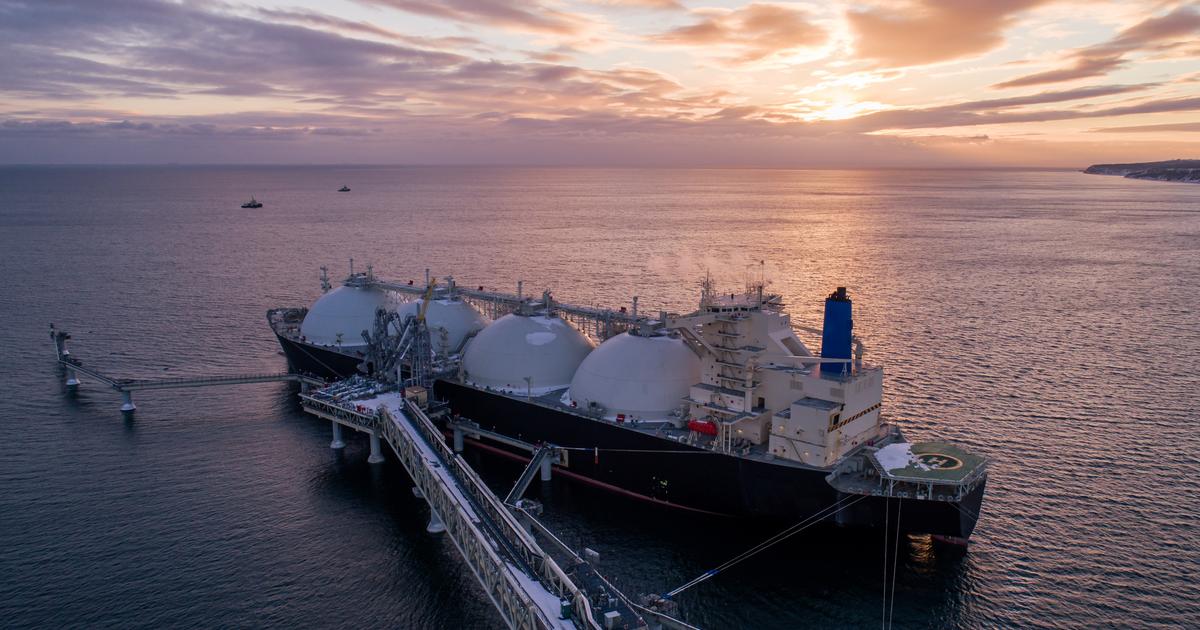Enlarge image
Russian coal freighter accompanied by Greenpeace activists on its way to the port of Hamburg in March
Photo:
Daniel Bockwoldt / dpa
With immediate effect, the EU states are no longer allowed to buy Russian coal, and a corresponding import ban is in force.
At midnight, the transitional period for the coal embargo against Russia, which the EU states had decided on as part of the fifth sanctions package in April, ended.
At the time, the countries had agreed on a transitional period of 120 days so that the industry could adapt to the import ban.
This has now expired.
The aim of the import ban is to further weaken the Russian economy against the background of the war in Ukraine.
According to the EU Commission in April, the coal embargo could mean a minus of around eight billion euros per year for Russia.
Coal now comes from the US or South Africa
Despite the import ban, the Association of Coal Importers (VdKi) does not expect supply bottlenecks in Europe, as coal is available on the world market.
The main supplier countries are now the USA, South Africa, Australia, Indonesia and Colombia.
In order to save natural gas, the first hard coal-fired power plant in Lower Saxony, which had already been shut down at the end of 2021, went back on line at the beginning of the month.
With the coal embargo, the EU is sanctioning energy supplies from Russia for the first time.
In a later package of sanctions, the EU countries also agreed to largely ban Russian oil supplies in order to further increase the pressure on Moscow.
However, this is not expected to apply until the end of the year, with exceptions for a few particularly dependent countries such as Hungary, which are still allowed to receive pipeline supplies from Russia.
On Tuesday, however, the Russian pipeline monopolist Transneft announced that oil deliveries to Hungary via the Druzhba pipeline had been stopped.
Recently, Russia has also drastically reduced gas supplies to Europe.
In view of the scarcity of deliveries of the raw material that is urgently needed for heating in households or in industry, there has not yet been an embargo on gas.
apr/dpa


/cloudfront-eu-central-1.images.arcpublishing.com/prisa/MN66YGPQPRILE3TOGBKUQ35FWI.jpg)











